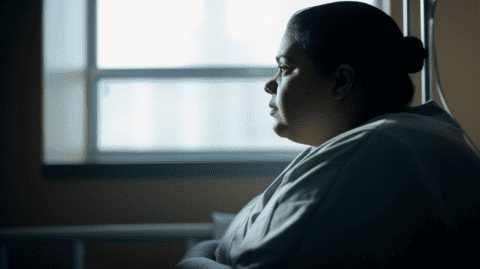Introduction: The Transformative Power of Gastric Bypass Surgery
Gastric bypass surgery, also known as Roux-en-Y, is a powerful procedure that aids in weight loss, combats obesity, and enhances the overall health of the patient. This operation involves reducing the size of the stomach and rerouting a portion of the small intestine, effectively limiting meal portions. As a result, your calorie intake decreases, and when combined with a balanced diet and regular exercise, you can experience significant weight loss in a relatively short period. This introduction to gastric bypass surgery will help you understand the transformative power of this procedure and its potential to improve your health.
Gastric bypass surgery is a significant step towards a healthier lifestyle. It’s a commitment to change, to adopt healthier eating habits, and to engage in regular physical activity. It’s not just about losing weight; it’s about improving your quality of life, reducing obesity-related health risks, and boosting your self-confidence.

The Gastric Bypass Surgery Procedure and Duration
The duration of a gastric bypass surgery is contingent upon the specifics of each individual case, typically ranging from 2 to 4 hours. The procedure commences once the patient is under general anesthesia, ensuring they remain unconscious throughout the operation. The surgeon makes minor incisions in the stomach and intestines, rerouting a portion of the digestive system. This rerouting allows food to bypass a part of the stomach, going directly to the small intestine. The incisions are then closed with stitches or staples. This section provides a detailed walkthrough of the surgical process and its timeline, helping you understand what to expect during the procedure.
Understanding the procedure and its duration is crucial for patients considering gastric bypass surgery. It helps set realistic expectations and prepares them mentally and emotionally for the journey ahead. It’s also important to understand that while the surgery itself lasts a few hours, the commitment to a healthier lifestyle lasts a lifetime.
Preparing for Gastric Bypass Surgery
The journey towards gastric bypass surgery begins hours before the actual procedure. Patients are required to arrive at the hospital on the day of their surgery for preparation, which includes changing into a hospital gown and meeting with the surgical team. The team will review the procedure, addressing any questions or concerns the patient may have. A sedative is administered to help the patient relax before the surgery.
Preparation also extends to the weeks and days leading up to the surgery. Patients may be asked to follow a specific diet to reduce the size of their liver, making the surgery safer and more effective. They may also need to undergo various tests and evaluations to ensure they are physically and mentally prepared for the surgery and the lifestyle changes that follow.
The Recovery Room: A Crucial Phase Post-Surgery
Immediately after the surgery, patients are not discharged. Instead, they are moved to a recovery room where their condition is closely monitored. During this time, patients will have a tube in their nose to aid breathing and an IV in their arm to provide fluids and pain medication. This phase typically lasts 1 to 2 hours, during which the medical team ensures the patient is awake and stable before moving them to a regular hospital room.
The recovery room is a critical phase post-surgery. It’s the first step in the healing process, where the immediate post-operative care is provided. The medical team closely monitors the patient’s vital signs, manages pain, and watches for any signs of complications. It’s a time of close observation and care, ensuring the patient’s safety and comfort.
Hospital Stay After Gastric Bypass Surgery
The hospital stay post-surgery usually lasts for two to three days. During this period, patients are advised to rest and refrain from strenuous activities such as heavy lifting or exercising for six weeks. It’s crucial to follow the doctor’s instructions for a swift and safe recovery.
The hospital stay is a time for rest, healing, and learning. Patients will start their post-operative diet and begin walking as soon as they are able. They will also receive education on their new dietary guidelines, medication regimen, and follow-up care. It’s a time of transition, preparing patients for their new lifestyle at home.
Life After Gastric Bypass Surgery
While the gastric bypass surgery itself may last between 2 to 4 hours, the journey towards a healthier lifestyle extends beyond the operation room. At Nova Bariatrics, patients can consult with top doctors and specialists to explore their options and receive guidance on their weight loss journey.
Life after gastric bypass surgery is a journey of transformation. It involves significant lifestyle changes, including a new diet, regular exercise, and regular follow-up care. It’s a time of discovery, challenges, and triumphs. With the right support and guidance, patients can successfully navigate this journey and enjoy the benefits of their healthier lifestyle.






